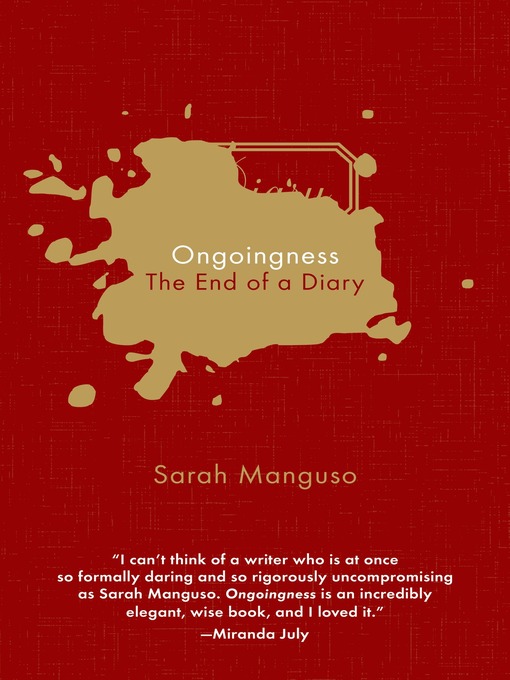"[Manguso] has written the memoir we didn't realize we needed." —The New Yorker
In Ongoingness, Sarah Manguso continues to define the contours of the contemporary essay. In it, she confronts a meticulous diary that she has kept for twenty-five years. "I wanted to end each day with a record of everything that had ever happened," she explains. But this simple statement belies a terror that she might forget something, that she might miss something important. Maintaining that diary, now eight hundred thousand words, had become, until recently, a kind of spiritual practice.
Then Manguso became pregnant and had a child, and these two Copernican events generated an amnesia that put her into a different relationship with the need to document herself amid ongoing time.
Ongoingness is a spare, meditative work that stands in stark contrast to the volubility of the diary—it is a haunting account of mortality and impermanence, of how we struggle to find clarity in the chaos of time that rushes around and over and through us.
"Bold, elegant, and honest . . . Ongoingness reads variously as an addict's testimony, a confession, a celebration, an elegy." —The Paris Review
"Manguso captures the central challenge of memory, of attentiveness to life . . . A spectacularly and unsummarizably rewarding read." —Maria Popova, Brain Pickings
- Dirt, Dinosaurs, and David Attenborough
- New eBook additions
- Handmade and Homegrown
- Dungeons & Dragons
- True North Strong and Well-Read
- Canada Reads 2025
- Always Available Fiction
- Always Available Non Fiction
- Black History and Black Future
- Witch, Please
- Looks Sweet but Could Be Spicy
- Based on a True Story: Page to Screen Edition
- Indigenous History and Voices
- See all ebooks collections
- Canada Reads 2025
- True Crime: For When You Run Out of Podcasts
- Available now
- Lest We Forget
- Summer Reading List: Recent Canadian books to read this summer
- New audiobook additions
- Looks Sweet but Could Be Spicy
- Most popular
- Hamilton Reads 2024: Chrysalis
- Indigenous History and Voices
- Based on a True Story: Page to Screen Edition
- Entering Our Eclipse Era
- BookTok Made Us Do It
- See all audiobooks collections
- Cooking & Food
- Home & Garden
- Lifestyle
- Fashion
- Health
- Business and Economics
- See all magazines collections


